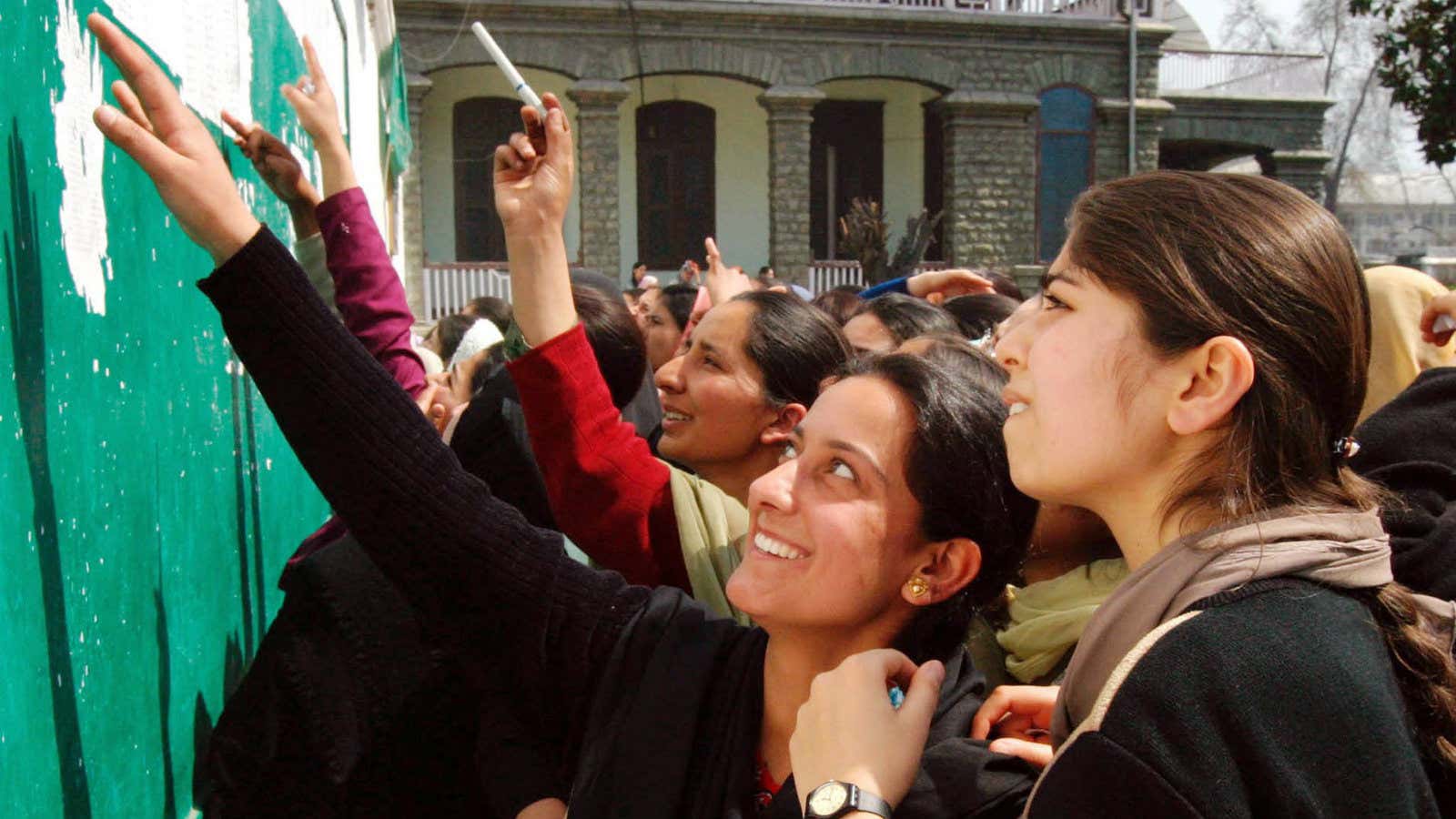More Indian women are enrolling at management schools. The postgraduate programme for 2017-19 at India’s best b-school, the Indian Institute of Management Ahmedabad (IIMA), saw its ratio increase to 28% from 21% in the previous batch and 14% the year before.
The FABM (food and agri-business management) postgraduate program attracted the most number of women students, who constitute 50% of the class this year, officials at the institute told Quartz in an email.
Today, India has few women in management roles. The country ranks the third-lowest in terms of business leadership roles held by women, a recent survey by advisory firm Grant Thornton shows. They hold only 17% of the senior roles and form a mere 7% of the senior management (CEO/managing director), the survey said.
Nevertheless, Indian women seem determined to make their way ahead, going by the admission data from IIMA, which is doing its bit to help them. While the institute neither has quotas nor gives women candidates extra credits, it has actively invited more women for interviews.
“The increased percentage has been achieved through a combination of active recruitment of women candidates, encouraging discipline diversity of students called for interviews, and paying attention to holistic leadership potential among applicants being interviewed. A broad mix across gender will contribute to a richer learning environment at the institute,” Ashish Nanda, director, IIMA said.
The institute’s incoming batch is diverse in other aspects as well. It has more non-engineers—33%, compared to 20% last year—pursuing the postgraduate programmes in management than it has had in the last 15 years. This, again, is a result of IIMA’s initiative to increase classroom diversity. The class of 2019 has “a number of CA/CS professionals, as well as a number of commerce, science, and arts graduates,” the institute said.
“Our admissions policy is to invite for interviews candidates from different academic disciplines based on their academic performances, subject to their clearing certain CAT (common admission test) cut-offs. This approach increases the discipline diversity of our incoming class. This is part of a conscious effort to improve the in-class learning experience of students, who we believe would benefit from being in class with people from diverse background” Apratim Guha, chairperson of admissions, said.
And it is not just in-class learning; diversity also helps companies perform better. Of the 265 Asia-Pacific companies with over $10 billion in market capitalisation, the share prices of the ones with at least one female board member outperformed the market by 58% between 2006 to July 2016, the Credit Suisse report said.
IIMA is also working diversity on nationality and has more foreign national students than it is required to recruit, the institute said.
